It can be confusing to know the order in which to apply your skincare products. Should you put on serum first, or moisturizer? What about facial oil? Eye Cream? In this blog post, we will discuss which first — serum, moisturizer, eye cream, or facial oil? Because the right order to apply skincare products for maximum results doesn't have to be complicated. Let's go, boo!

Why Skincare Order MATTERS!
As avid skincare enthusiasts, we can tell you firsthand why order matters when it comes to applying your products. You see, different products have different ingredients and functions. That's why it's so important to apply them in the right order to get the maximum results. It doesn't matter what your skin is—dry skin, sensitive skin, combo skin, delicate skin, mature skin, or oily skin. When you layer on the wrong product first, it could block other beneficial ingredients from penetrating your skin and giving you the desired effect.

For instance, if you have an oil-based product (like a glowing facial oil), you don't want to put this on before applying a water-based one (think moisturizer). Since oil and water don't mix, the oil layer will create a barrier and prevent any benefits from the other product from reaching your skin. So, it's important to layer your products in the correct order for maximum results.
So, What’s the Right Order for Your Skin Care Routine?
Now that you know why order matters, let's discuss what the right skincare order is. The good news is that this order really isn't complicated and can be easily remembered and only proves slightly different for daytime than for nighttime skin care routines.

The Correct Order For Your Daytime Skin Care Routine
For your daytime routine, you'll need to apply skincare products is as follows:
1. Cleanser - start with a good face washing. Use something gentle, preferably with super fruits and sea kelp if you can get your hands on it. This is critical for all skin types from oily skin to dry to acne-prone and combo skin.
2. Toner - next, use a toner to help balance your skin's pH levels and prep it for the products to follow. Toners are essentially the bridge between cleansing and moisturizing. That's because they help to restore your skin's natural pH balance using ingredients like hyaluronic acid or glycolic acid, preparing it for moisturizing.

3. Serum – now, you’re ready for serum! Apply this all over your face and neck area in an upward motion. Applying serum before your moisturizers and oils ensure that your skin gets the maximum benefit from its active ingredients. Serums are typically filled with antioxidants and other beneficial compounds, so applying them directly onto clean skin will help them penetrate faster and more effectively.
For daytime, use something filled with antioxidants like Vitamin C, Bakuchiol, and green tea extract. These are great ingredients for boosting your skin cell turnover as well as providing an antioxidant boost that helps protect your skin from free radical damage. Since free radicals are present in the environment and can speed up aging, it's important to protect your skin when you go outside.

4. Day Moisturizer - next, apply a day moisturizer to keep skin hydrated and protected from the elements. When looking for a good moisturizer, make sure you see ingredients like aloe vera, hyaluronic acid, squalene, and ceramides. These ingredients help to lock in moisture and keep your skin feeling soft and hydrated throughout the day.

5. Eye Cream - Next, add on an eye cream to help reduce puffiness and dark circles. Technically speaking, Eye creams are part of the moisturizer family, which is why sometimes your board-certified dermatologist will tell you to apply it before your moisturizer, while others say afterward. It doesn't really matter which method you follow as long as you apply it before facial oil.
For maintaining healthy skin, your eye cream should include ingredients like aloe vera, coffee, and green tea extract, as these are all great for reducing puffiness and dark circles. Eye creams, unlike facial moisturizers, contain more concentrated ingredients to help target the specific needs of your under-eye area.
6. Facial Oil - If you're using a facial oil, this should be applied after your moisturizer and before any makeup products. Facial Oils are great for locking in moisture, protecting skin from environmental stressors, and giving your skin an extra dose of nourishment.

Look for facial oils that contain ingredients such as jojoba oil, avocado oil, argan oil, rosehip seed oil, and squalane. These are all great for providing deep hydration and protection. When applying facial oil, use as little or as much as you'd like. A few drops will be enough to give your skin the nourishment it needs without looking greasy. Facial oils also act as a perfect primer for makeup, which is a big bonus in our book!
7. Sunscreen - Don’t forget your sunscreen! This should be applied after all other skincare products but before makeup. It's important to use a broad-spectrum sunscreen with at least SPF 30 that offers both UVA and UVB protection whenever you will be outside. Opt for a reef-friendly mineral sunscreen in your daytime skin care routine for optimal performance without the damage to waterways.

The Correct Order For Your Nighttime Skin Care Routine

At night when you’re at home and nearly ready to hit the sack. So, you can be a little bit more luxurious with your skincare routine. The order of application is slightly different, but the same principles apply:
1. Cleanser - start by washing your face with a gentle cleanser to remove dirt and excess oil. If you're wearing makeup, you can also try using a dedicated makeup remover or cleansing oil to remove residue.

2. Toner - use toner to help balance pH levels and prep skin. Toners also help remove last traces of makeup.

3. Serum – apply this all over your face and neck in an upward motion to help the product better penetrate your skin. Look for a serum that is tailored to your specific skin type and concerns, such as anti-aging, brightening, or hydrating.
4. Eye Cream - use a rich eye cream to reduce puffiness and dark circles

5. Night Cream - finish off with a heavier night moisturizer, this will give your skin an extra boost of hydration while you sleep. Look for a moisturizer with hydrating ingredients such as aloe vera, squalene and ceramides.

6. Facial Oil – if you're using a facial oil, this should be applied after your serums, creams, and moisturizers. This will help lock in all the hydration and provide extra nourishment to your skin overnight. Look for an oil rich in antioxidants and skin-boosting ingredients like argan, jojoba, and calendula oils.
By following this skincare routine, you can ensure that your skin gets everything it needs for optimal health and beauty! Remember, the best skincare routine is one that is tailored to your own unique skin type. With consistency and patience, you will start to see results soon enough.
Common Skincare Routine Questions
If I have dry skin, do I need to use a facial oil as part of my skin care regimen? Is there a benefit to adding it?
Yes! Facial oils are great for all skin types, especially dry skin. They provide essential fatty acids and antioxidants that can help keep your skin hydrated and nourished. It's best to apply facial oil after your moisturizer as this will seal in the moisture and help make sure that your skin gets the maximum benefit from its active ingredients. Look for a facial oil that includes natural ingredients like rosemary, jojoba, avocado, or argan oil.
If I have sensitive skin, can I still use a serum?
Yes, you can! However, it’s important to look for serums that are specifically formulated for sensitive skin. These will typically contain gentler ingredients and be free from potential irritants such as fragrances or dyes. Also, it’s a good idea to test the serum on a small patch of skin before using it all over your face.

Which is better for reversing signs of aging on mature skin: a vitamin C serum or a bakuchiol serum?
Both of these serums can be great for reversing signs of aging. Vitamin C is a powerful antioxidant that can help brighten skin and reduce the appearance of wrinkles and fine lines. Bakuchiol, on the other hand, is a plant-derived alternative to retinol that has similar anti-aging benefits but is gentler on the skin. Ultimately, the best option depends on your skin type and concerns.

For dry skin, is it better to use a cream or an oil-based moisturizer?
Generally speaking, creams tend to be thicker and will provide more hydration, while oils are lighter on the skin and can be beneficial for providing extra nourishment. Most individuals with ultra-dry skin should opt for a facial oil to soothe and nourish the skin. Look for an oil that is rich in omegas, vitamins, and antioxidants. Jojoba or rosehip oils are great options!
Do eye creams really do anything more than a facial moisturizer?
Yes, eye creams are specifically formulated for the delicate skin around your eyes and contain different ingredients than facial moisturizers. Eye creams are usually more hydrating and can also help reduce puffiness and dark circles. They’re a great addition to any skincare routine if you want to target the signs of aging in this area.
When should I apply my acne treatment? Before or after my serums?
It really depends on the type of acne treatment you are using. Most spot treatments should be applied after your serum but before your moisturizer so that it can penetrate the skin more easily and work more effectively. However, if you are using a chemical exfoliant such as a BHA or AHA product, these should be applied after your serums and before your moisturizer. As always, it’s best to check the product directions for specific instructions on how to use it.

What's a serum anyway?
A serum is a concentrated liquid formulation that is applied directly to the skin and contains higher concentrations of active ingredients than traditional creams or moisturizers. They are designed to penetrate deeply into the skin, providing targeted treatment for specific concerns and delivering powerful results. Serums can help treat wrinkles and fine lines, improve skin tone and texture, protect against environmental damage, and more. They are an important part of any comprehensive skincare routine.

What should I look for in an anti aging serum?
When looking for an anti aging serum, you should look for one that contains ingredients that can help stimulate collagen production, such as peptides. Additionally, antioxidants are important to help protect the skin from environmental damage. Look for serums with Vitamin C and E to nourish skin as well as natural extracts like green tea or pomegranate which can help reduce inflammation.
Is there any benefit to using makeup remover and facial wash? Can't I just wash my face to remove makeup residue for my skin care routine?
Using both a makeup remover and facial wash is important for removing all traces of makeup from the skin. Makeup removers can help dissolve tough products like waterproof mascara and long-lasting lipsticks, while facial washes will gently cleanse the skin without stripping away its natural oils. Using both steps of the double-cleansing method will ensure that your skin is thoroughly clean and makeup-free. This will also help protect against breakouts and other skin issues caused by leftover makeup residue, so it’s definitely an important part of any skincare routine.

I have oily skin. Will a facial oil make my skin even more oily?
No, it won't. Oily skin can actually benefit from the use of facial oils since they help to balance out skin’s natural oil production. Plus, natural oils are packed with anti-aging vitamins and antioxidants that can help nourish and protect the skin. It’s important to choose an oil that is specifically formulated with active ingredients for oily skin, such as jojoba or squalane oil. These will help to hydrate the skin without leaving it feeling greasy or overloaded with moisture.

What type of natural ingredients combat acne but are good for dry and sensitive skin?
There are several natural ingredients that can help fight acne while still being gentle on dry and sensitive skin. Tea tree oil is a popular choice, as it has anti-inflammatory and anti-bacterial properties that can reduce redness and puffiness caused by blemishes. Skin's inflammatory response is often caused by bacteria. Luckily, tea tree oil can help kill this bacteria.

Aloe vera is also great for combating acne and soothing the skin, as it has both cooling and hydrating properties. Additionally, honey is a natural antibacterial that will help fight off breakouts while still nourishing dry skin. Finally, witch hazel is another great option that aloe vera is another great option, as its soothing and moisturizing properties can help calm the skin and reduce redness. Other natural ingredients to look for in acne treatments include honey, witch hazel, rosemary, and green tea extract.
I have combination skin. Will a hydrating serum like Hyaluronic Acid serum help my skin?
Yes, a hydrating serum like Hyaluronic Acid (HA) can be beneficial for combination skin. HA is a powerful humectant that draws in moisture to the skin and helps retain it, making it great for those with combination skin who want to keep their skin hydrated without becoming too oily or too dry. Look for formulas that also contain other beneficial ingredients such as Vitamin C and niacinamide, which can help brighten and even out the skin tone. Also make sure to follow up with a moisturizer to seal in all the goodness from your serum.

I have pretty severe rosacea. What type of treatment serums or oils address this specific skin concern?
Rosacea is a common skin condition that can cause redness, flushing, and other visible signs of inflammation. Fortunately, there are several treatments available that can help address this issue. For those with rosacea, the most important step is to look for formulas that are specifically designed to help reduce redness and soothe inflammation.
Look for oils or serums containing ingredients like niacinamide, aloe vera extract, green tea extract, chamomile extract, licorice root extract, and cucumber extract. These ingredients can help reduce inflammation and minimize redness, while also providing nourishing hydration to the skin.

I have very sensitive skin and retinol is making it very irritated. What alternative active ingredients should I look for in an anti-aging serum?
Retinol has a history of being extremely irritating to skin. We recommend natural alternatives that are still effective at treating signs of aging but gentle enough for sensitive skin. Bakuchiol is probably the most common stand-in for retinol as it is a natural antioxidant that has been shown to reduce signs of aging, improve skin resilience and firmness, and even out skin tone.
Other great options for sensitive skin include peptides and algae extracts which help stimulate collagen production and keep the skin hydrated. Vitamin C is a great option, as it helps to brighten the complexion and reduce the appearance of fine lines and wrinkles. Hyaluronic acid is another powerful ingredient that can help hydrate the skin and reduce signs of aging. Finally, look for serums containing vitamins C and E which are both antioxidants that can help protect against signs of aging.
What's the difference between body SPF and facial sunscreen?
Body SPF is typically formulated to protect against UVB rays, the primary cause of sunburns. On the other hand, facial sunscreen is designed with both UVA and UVB protection in mind and will provide more comprehensive coverage.
Additionally, facial sunscreens are usually lighter on the skin and won’t leave a greasy residue. It’s important to use a separate sunscreen for your face and body, as facial skin is more delicate and prone to sun damage. Modern physical or mineral sunscreen is nothing like it's predecessors. It's easy these days to find a formula
Is it helpful to use more than one serum at a time?
It can be, but it depends on the type of serums you are using. Generally, if you are using more than one serum at a time, make sure they contain complementary ingredients that work well together and target different skin concerns. For example, combining an antioxidant serum with a brightening serum would be beneficial as they both have their own unique benefits.
However, if you are using more than one serum that targets the same concern (e.g., both are meant to reduce wrinkles) then it may be best to just stick with one. Also, make sure to read the product directions and use as recommended. For instance, we recommend not using Vitamin C with a Bakuchiol serum as these two ingredients can be irritating when used together.
Which ingredients will help make my skin plump and glowy-looking?
If you’re looking for plump and glowy skin, then look for serums containing hyaluronic acid as this is a powerful ingredient that can help retain moisture in the skin. Vitamin C is also great for brightening the complexion and adding a healthy glow to the skin. Peptides are an excellent choice as well since they help stimulate collagen production, which can make the skin look firmer and plumper. Finally, look for serums containing antioxidants such as green tea extract or niacinimide, as these ingredients will help fight against free radicals and protect the skin from environmental damage. All of these ingredients work together to give you glowing and healthy-looking skin.

If I'm acne-prone, can I still use a Hyaluronic Acid serum without triggering a breakout?
Yes, absolutely! Hyaluronic acid is a powerful humectant (a compound that helps skin maintain moisture) that helps keep skin hydrated and balanced. In fact, it’s great for all skin types—including acne-prone—as it can help reduce inflammation and keep breakouts at bay. Just be sure to choose a serum that doesn't contain any potential acne triggers, such as artificial fragrances or dyes.
What's the difference between a makeup remover and a cleansing balm?
Makeup removers are generally oil-based formulas that help to remove makeup, dirt, and other impurities from the skin. They usually come in liquid or cream form and can be used with a cotton pad or tissue to wipe away product. Cleansing balms, on the other hand, are solid cleansers that contain mostly oils and waxes. They are typically applied to the skin directly and then rinsed off with water. Both makeup remover and cleansing balms provide effective cleansing, but cleansers tend to be more thorough as they penetrate deep into the pores.
Additionally, cleansing balms can help nourish and hydrate the skin while removing impurities. Ultimately, it comes down to personal preference and skin type. Those with sensitive or dry skin may find that cleansing balms are more gentle and nourishing, while those with oily or combination skin may prefer the quick cleanse of a makeup remover.
What's the difference between a facial moisturizer and a night cream?
Moisturizers are typically lighter in texture and designed to be worn throughout the day, while night creams are heavier and more emollient. Both moisturizers and night creams can help provide hydration, but night creams usually contain additional ingredients that work overnight to help repair the skin.

These ingredients often include antioxidants, peptides, and other skin-soothing ingredients. Night creams typically also contain more oils and fatty acids, which can help to lock in moisture and provide an extra boost of hydration. Ultimately, it’s important to choose a product that is suited for your skin type—whether it be a day or night cream.
Which skincare products should I use to treat inflammation?
If you are suffering from inflammation, it’s important to use a gentle, non-irritating skincare routine. Look for products that contain calming ingredients like aloe vera, chamomile extract, and green tea extract, which can help soothe redness and irritation. Additionally, ingredients such as peptides and antioxidants can help reduce inflammation. Be sure to avoid products containing fragrances or alcohol, as these can be harsh and aggravate already inflamed skin.
Lastly, it’s important to wear sunscreen every day in order to protect your skin from further damage caused by UV rays. Just make sure to choose a mineral variety over a chemical sunscreen.
What's the difference between a chemical and physical exfoliator for your face?
Chemical exfoliators use enzymes or acids to dissolve the glue that holds dead skin cells together, while physical exfoliators use a scrubbing agent (like sugar, salt, or coffee grounds) to manually remove the cells.
Chemical exfoliators are often considered more effective because they can penetrate deep into the pores to remove all of the build-up, while physical exfoliators can be a little bit harsher and may not be as effective at removing all the dirt and debris. It's important to choose an exfoliator that is suited for your skin type—whether it's chemical or physical. If you have sensitive skin, we recommend opting for a chemical exfoliator; if you have oily or acne-prone skin, go for a physical exfoliator.
If I'm planning to do a clay face mask, when should I do it in my nighttime routine?
Clay masks should be applied after your toner, but before any serums or moisturizers. This is because the clay needs to be left on for a few minutes in order to deeply cleanse and draw out impurities from the skin. After removing the mask, you can then apply your remaining skincare products.

How often should I use a serum in my skincare routine?
It depends on the type of serum you are using. For preventative care, we recommend using a serum every day in your morning and night routines. However, if you are using an active ingredient serum to target specific skin concerns (e.g., acne or wrinkles) then it’s best to use them as directed—typically 1-2 times a week—to ensure the best results. It’s also important to note that using too many active ingredient serums in one day may cause irritation or sensitivity, so always read the product directions and use as recommended. In conclusion, there is no single right answer when it comes to skincare order.

The general rule is to apply products from the thinnest to thickest consistency, so serums should come before moisturizers and facial oils. However, it’s also important to take into account the type of product you are using and how often you use it in order to determine the best skincare routine for your skin. If ever in doubt, we always recommend checking the product directions or consulting with a skincare professional.

Are Toners really that helpful? What type of skin benefits the most from using a toner?
Toner can be a great addition to any skin care regimen as it helps restore the skin’s natural pH balance and can also help remove excess dirt and oil. Therefore, anyone who wants to maintain a healthy complexion will benefit from using a toner. However, those with particularly oily or acne-prone skin may find the most benefits from using a toner as it can help keep breakouts at bay.
What is an example of a humectant?
A humectant is a compound that helps skin to retain moisture. Humectants are compounds that help your skin retain moisture. They draw in and hold onto water molecules, giving your skin a boost of hydration and nourishment. Common humectants include glycerin, hyaluronic acid, aloe vera, honey, and propylene glycol.
Humectants are found in many skin care products, so you can still reap the benefits of Hyaluronic Acid without fear of triggering a breakout. These ingredients can be found in many different skincare products such as serums, moisturizers, and masks. When used regularly, they can help keep the skin moisturized and prevent dehydration.
Does Bakuchiol cause sun sensitivity like retinol?
No, Bakuchiol does not cause sun sensitivity the same way retinol does. Bakuchiol is a natural ingredient derived from the babchi plant and is a popular alternative to retinol because it provides anti-aging benefits without causing irritation or sensitization.

However, just like with any skincare product, it's important to use a broad-spectrum sunscreen when using Bakuchiol, as it won't protect against harmful UV rays.
I want my skin care routine = simple. Help!
Creating a simple skin care routine doesn’t have to be complicated or overwhelming. Start by washing your face with a gentle cleanser twice daily, followed by a toner and serum of your choosing. After that, apply an oil-free moisturizer and sunscreen each day to keep your skin hydrated and protected from sun damage. That's about as simple as it comes.
Any skin care boosters that I should try?
If you’re looking to add a bit of oomph to your routine, there are a few skincare boosters that can help. Vitamin C serum is one of the most popular boosters as it helps brighten and even out skin tone while also providing antioxidant protection. Additionally, exfoliating acids like AHAs or BHAs can help remove dead skin cells and promote healthier-looking skin. Finally, a facial oil or face mask can provide extra hydration, nutrients, and nourishment for your skin. Give any of these boosters a try to see if they suit your needs!

Healthy skincare routines start 1 day at a time
We hope this blog post was helpful in giving you an understanding of what order to apply your skincare products for maximum results. Remember, serums first, then moisturizer, eye cream and facial oil to finish off! If you have any questions or need more advice, feel free to contact us. We’re here to help!
Want to save 55% on your daily skincare routine? Join the Essentials Club! You'll get $20 off your first box with code BBEBOX20.
Good luck and happy skincare-ing!

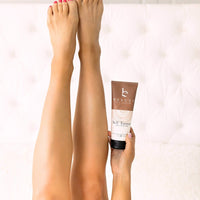
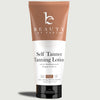
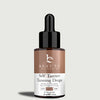
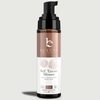
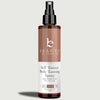
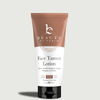
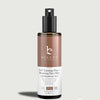
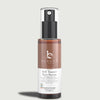
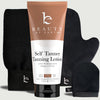
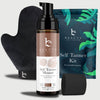

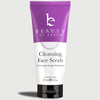
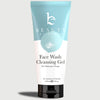

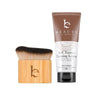











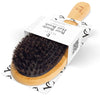
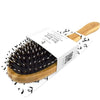
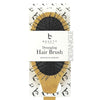
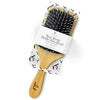
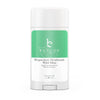


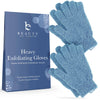
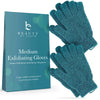
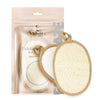


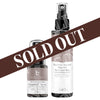





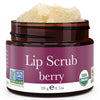
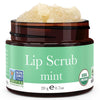
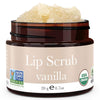





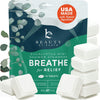
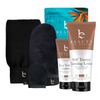
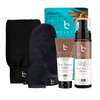


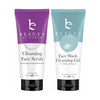
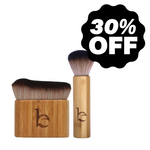
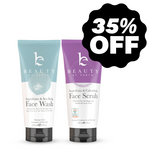


















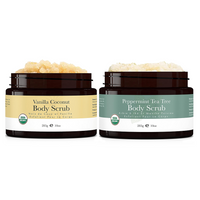
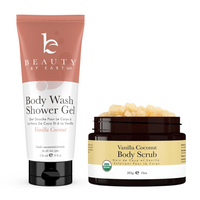
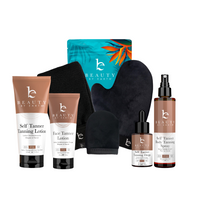
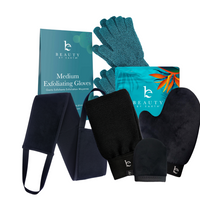
join the conversation
Do I need a serum with vitamin C ?
The best order of skin care products have ever known, congratulations